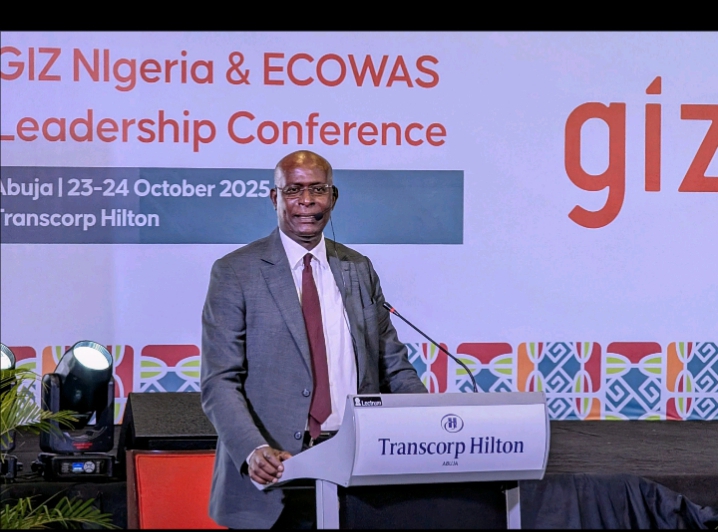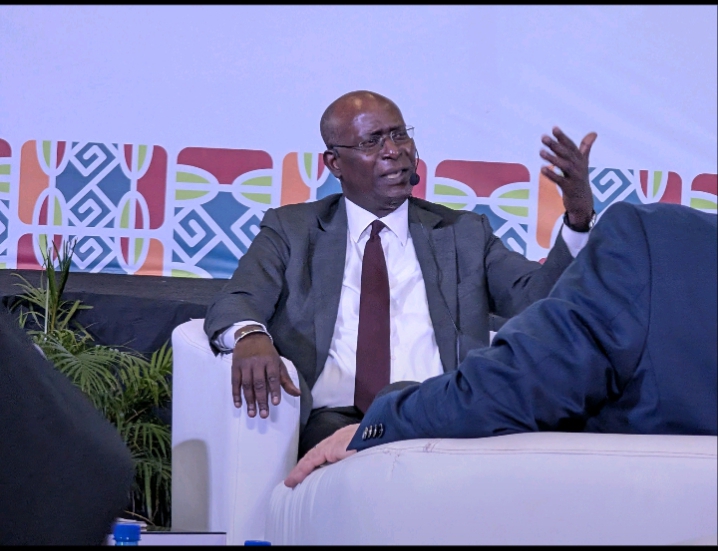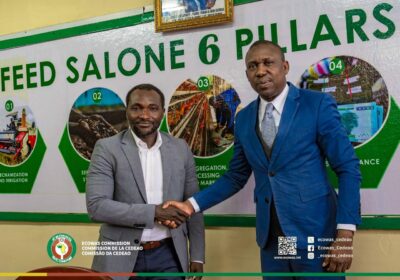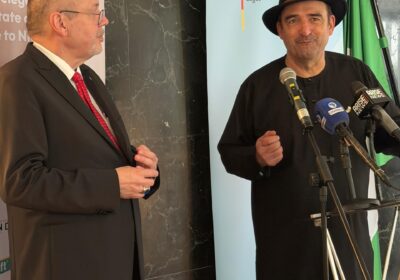GIZ–ECOWAS Summit in Abuja Charts a New Course for Transformational Leadership in West Africa.
By Raymond Enoch.
The grand halls of Transcorp Hilton, Abuja, pulsed with ideas and optimism this week as policy shapers, technocrats, and visionaries from across West Africa gathered for the GIZ–ECOWAS Leadership Conference, held from October 23rd to 24th, 2025. Themed “Leadership for Sustainable Development in an Era of Complexity and Digital Transformation,” the two-day event explored what it truly means to lead in a world where uncertainty is the new normal.

Delivering a keynote address at the Summit, the United Nations Resident and Humanitarian Coordinator, H.E. Mohammed Mallick Fall, set the tone for the high-level dialogue. He underscored the urgent need for visionary leadership that transcends borders, embraces inclusivity, and prioritizes people-centered governance. Fall commended ECOWAS and GIZ for creating a platform that nurtures forward-thinking leaders capable of driving sustainable transformation across the sub-region.

Further in his presentation, he emphasized that the 2030 Agenda is not merely a development framework — it is a leadership blueprint. It challenges governments and institutions to look beyond short-term political gains and to place people, not politics, at the heart of decision-making.
“Leadership today must be transformational. It must be inclusive. It must be adaptive,” I told participants. “We can no longer lead through control — we must lead through connection. It’s time to move from hierarchy to collaboration, from procedures to purpose, from silos to systems.”
This call resonated deeply with delegates representing governments, civil society, academia, and the private sector, many of whom echoed the urgency for a new kind of leadership — one that bridges technology and humanity, vision and empathy.
Drawing insights from the UN’s Governance Futures Report, the conference highlighted a key message: institutions built for the 20th century cannot solve the challenges of the 21st. The region needs leaders who can navigate uncertainty with foresight — connecting poverty to climate, gender to governance, and technology to human dignity.
Speakers at the Summit underscored that ECOWAS, in partnership with GIZ, must continue to nurture a generation of public leaders who are digitally fluent, ethically grounded, and globally competent. But beyond digital skills and policy frameworks, the true test of leadership lies in empowering local communities.
“Leadership must also be local,” I stressed. “Communities must be trusted to co-create solutions. As the UN says — ‘leave no one behind’ means let everyone lead.”
At the end of the conference’s closing session , one thing was clear: the path to sustainable development in West Africa depends on leaders who can think globally, act locally, and connect courage with compassion. The GIZ–ECOWAS Leadership Conference may have concluded — but the leadership movement it sparked has only just begun.









